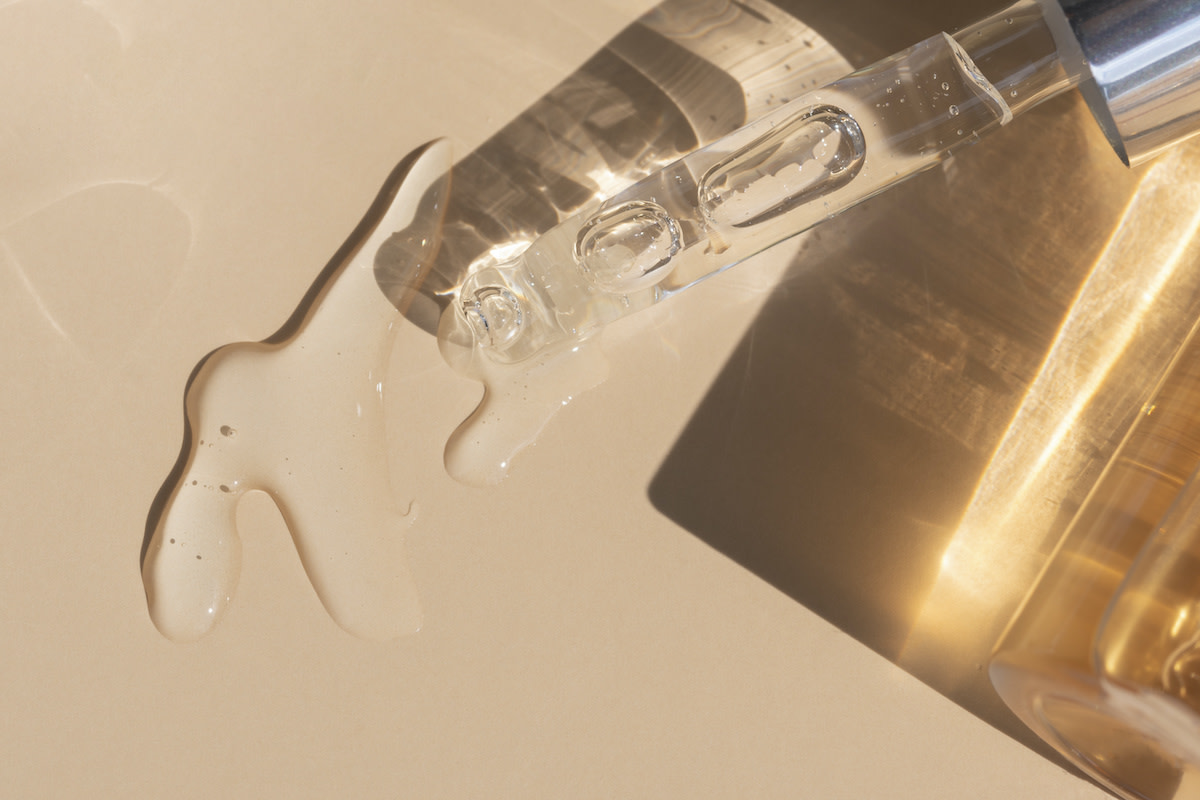How Copper Peptides Work: Skincare Uses for Peptides
Written by MasterClass
Last updated: Sep 9, 2021 • 3 min read
Copper peptides, also known as copper tripeptides, form when peptides bind with copper enzymes. As strong antioxidants, copper peptides promote skin regeneration and complexion enhancement.
Learn From the Best
What Are Copper Peptides?
Copper peptides (GHK-Cu) are naturally occurring copper-binding tripeptides that aid in healing and immunity. A tripeptide—a short string of amino acids linked together by two or three peptide bonds—is a signaling protein that responds to tissue injuries by triggering an immune response and activating blood vessel growth and anti-inflammatory agents. Tripeptides stimulate collagen production and elastin, a key protein that helps skin maintain its structure and shape. As your body ages, collagen production begins to decrease, triggering signs of aging.
Lab-made peptides mimic their naturally occurring counterparts; pharmaceutical companies use them to make certain medications, while the skincare industry uses them to make products that stimulate collagen production.
The healing effects of copper peptides may help sustain skin health and hair growth, as copper peptides function as an antioxidant, or molecule that fights free radicals in the body. Copper peptides may potentially reduce fine lines, wrinkles, and sagging skin by promoting collagen and elastin production. Copper peptides also promote the production of glycosaminoglycans, including hyaluronic acid, which helps moisturize and hydrate the skin barrier.
4 Possible Benefits of Copper Peptides for Skin
Copper peptides offer numerous potential skincare benefits, and many skincare routines incorporate copper peptides to enhance overall complexion and skin wellness.
- 1. May reduce fine lines and wrinkles: By increasing collagen production in the skin, copper peptides may help tighten sagging skin, potentially reducing the appearance of fine lines and wrinkles.
- 2. May improve elasticity: Elastin is the protein in the skin that promotes elasticity, or the skin’s capacity to stretch back into place. As you age, elastin production decreases, and your skin loses elasticity. Copper peptides may help stimulate elastin production, which can improve skin elasticity.
- 3. Hyperpigmentation treatment: Hyperpigmentation are dark patches of skin that result from melanin overproduction. Hyperpigmentation can occur for many reasons, including inflammation from pimples, sun exposure, medication side effects, or general skin injuries. Copper peptides may help even skin tone and reduce the appearance of blemishes, acne scars, and age spots by treating inflammation.
- 4. UV protection: Both free radicals and the sun’s UV rays damage the skin’s ability to regenerate, causing wrinkles, age spots, and in some cases, skin cancer. Copper peptides may positively impact skin fibroblasts—cells that generate connective tissue—potentially combating UV damage to the skin barrier.
How Do Copper Peptides Work?
Unlike most skincare ingredients, copper peptides absorb deep into the skin, below the epidermis. Copper peptides work as a signal, triggering the skin to produce collagen and elastin. By hydrating and rejuvenating skin cells, copper peptides may potentially reduce the appearance of fine lines and wrinkles and help with evening out your skin tone.
5 Tips for Using Products With Copper Peptides
You can find face moisturizers and serums with copper peptides.
- 1. Test before use: Before using a new skincare product, it’s a good idea to perform a patch test by applying a small amount inside your elbow or behind your knee and waiting 24 hours to see if there is any irritation in the area.
- 2. Try facial moisturizers: Some facial moisturizers contain copper peptides, which promote skin hydration by increasing the production of hyaluronic acid, a key molecule that helps the skin retain moisture.
- 3. Opt for serums: The most common use for copper peptides is in serums, as they contain a high concentration of active ingredients, which can lead to faster results. Some eye creams also contain copper peptides for firming the eye area. Apply copper peptide serums to your skin after cleansing and before moisturizing.
- 4. Apply face lotions after cleaning: To use a face lotion with copper peptides, simply add a dime-size amount of the moisturizer to washed and dry skin, evenly coating your face in the moisturizer.
- 5. Avoid mixing with vitamin C: Avoid using copper peptides with products containing vitamin C, glycolic acid, and retinol, as this can reduce its effectiveness.
Possible Side Effects of Copper Peptides
While copper peptides are a low-risk skincare ingredient, they can trigger an allergic reaction in some individuals. Signs of an allergic reaction include hives, itchy or burning skin, and redness. Sensitive skin types are more prone to reactions.
Before Starting a New Skincare Regimen
Individuals experience different levels of sensitivity to ingredients found in various skincare products. To prevent adverse reactions, consult a dermatologist before applying a new product to your skin. This article is for educational and informational purposes only and is not a substitute for professional medical advice.
Learn More
Get the MasterClass Annual Membership for exclusive access to video lessons taught by the world’s best, including Bobbi Brown, RuPaul, Anna Wintour, Marc Jacobs, Diane von Furstenberg, and more.
